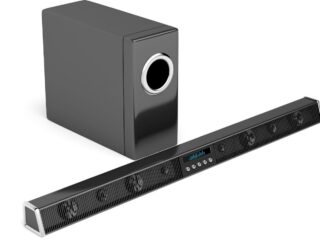
Let’s take a closer look at the similarities and differences between these two important roles.
What is the difference between a business analyst and a systems analyst?
Systems analysts and business analysts both play important roles in improving company productivity and efficiency, but they have different focuses. Business analysts look at the big picture of how a company runs and identify areas where improvements can be made, while systems analysts focus on designing or selecting the right computer system for a company and making sure it runs smoothly.
Business analysts are sometimes called management consultants or process improvement specialists. They assess how well a company is doing overall and look for areas where the company could be more efficient or profitable. This could involve streamlining processes, improving communication between departments, or developing new products or services.
Systems analysts are sometimes called computer consultants, information technology (IT) specialists, or systems architects. They focus on designing or choosing the right computer system for a business and making sure it runs smoothly. This includes selecting hardware and software, as well as designing custom applications when necessary. They also troubleshoot problems with existing systems and train users on how to use them effectively.
Business analyst vs systems analyst
- Business analyst vs systems analyst: what’s the difference?
Business analysts focus on solving business problems, while systems analysts focus on solving technical problems.
- Business analyst vs systems analyst: responsibilities
The responsibilities of business analysts and systems analyst can overlap, but there are some key differences. Business analyst responsibilities include requirements gathering, business process improvement, data analysis, and project management. Systems analyst responsibilities include system design, system testing, user training, and system maintenance.
- Business analyst vs systems analyst: skills
The skills required for business analysts and system analyst are also different. Business analysts need strong problem solving skills and must be able to think creatively to find innovative solutions to complex business challenges. They also need excellent communication and interpersonal skills to effectively collaborate with stakeholders from all levels of an organization. Systems analysts need strong analytical and technical skills to be able to understand the complexities of an organization’s technical landscape and identify opportunities for improvement. They also need strong project management skills to be able to effectively plan and execute complex technical projects.
So, what’s the bottom line? The roles of business analyst and system analyst are different, but there is some overlap in their responsibilities and skills. If you’re interested in a career in either field, it’s important to understand the distinctions so you can decide which path is right for you.
The skills required for business analysts and systems analysts
Business analysts and systems analysts both play important roles in an organization’s ability torun smoothly and efficiently. However, these two professions are quite different, each requiring its own unique skillset.
Systems analysts are responsible for designing, developing, and maintaining the systems that an organization uses to run its business. This includes everything from computer systems to the more complex enterprise-wide systems that may be used by large corporations. They must have a strong understanding of both business and technology in order to be successful.
Business analysts, on the other hand, are responsible for identifying the business needs of an organization and finding ways to improve efficiency and effectiveness. They work closely with Systems Analysts to ensure that the technical solutions being developed meet the needs of the business. Business analysts must have strong analytical and problem-solving skills, as well as a deep understanding of the inner workings of businesses.
The education and training required for business analysts and systems analysts
Business analysts and systems analysts need different levels and types of education and training in order to be successful in their respective roles.
Business analysts typically need at least a bachelor’s degree in business administration or a related field. Many companies also require business analysts to have experience working in the industry that they will be serving. For example, a business analyst who will be working with financial systems will need to have experience working in the finance industry.
Systems analysts typically need at least a bachelor’s degree in computer science or a related field. In addition to their formal education, many systems analysts also have experience working in the industry that they will be serving. For example, a systems analyst who will be working with healthcare information systems will need to have experience working in the healthcare industry.
The work environment for business analysts and systems analyst
The work environment for business analysts and systems analysts is similar in many ways. Both types of professionals typically work in office settings, although they may travel to meet with clients or attend conferences. They generally work regular business hours, although overtime may be required to meet deadlines or resolve problems.
There are some important differences between the work environments of business analysts and systems analysts. Business analysts are more likely to work in team settings, while systems analysts are more likely to work independently. Business analysts are also more likely to interact directly with clients, while systems analysts typically interact more with computer programmers and system administrators.
The salary and job outlook for business analysts and systems analysts
In terms of salary, business analysts earn a median salary of $75,000 per year, while systems analysts earn a median salary of $85,000 per year. However, job prospects for business analysts are expected to be better than for systems analysts, with an estimated growth rate of 14% for business analysts compared to just 4% for systems analysts.
So, if you’re interested in a career in business or systems analysis, which should you choose? The answer may depend on your skillset and interests. If you’re good with numbers and have an affinity for details, you may be better suited to a career as a business analyst. However, if you’re more interested in the technical aspects of system design and implementation, then a career as a systems analyst may be a better fit.








